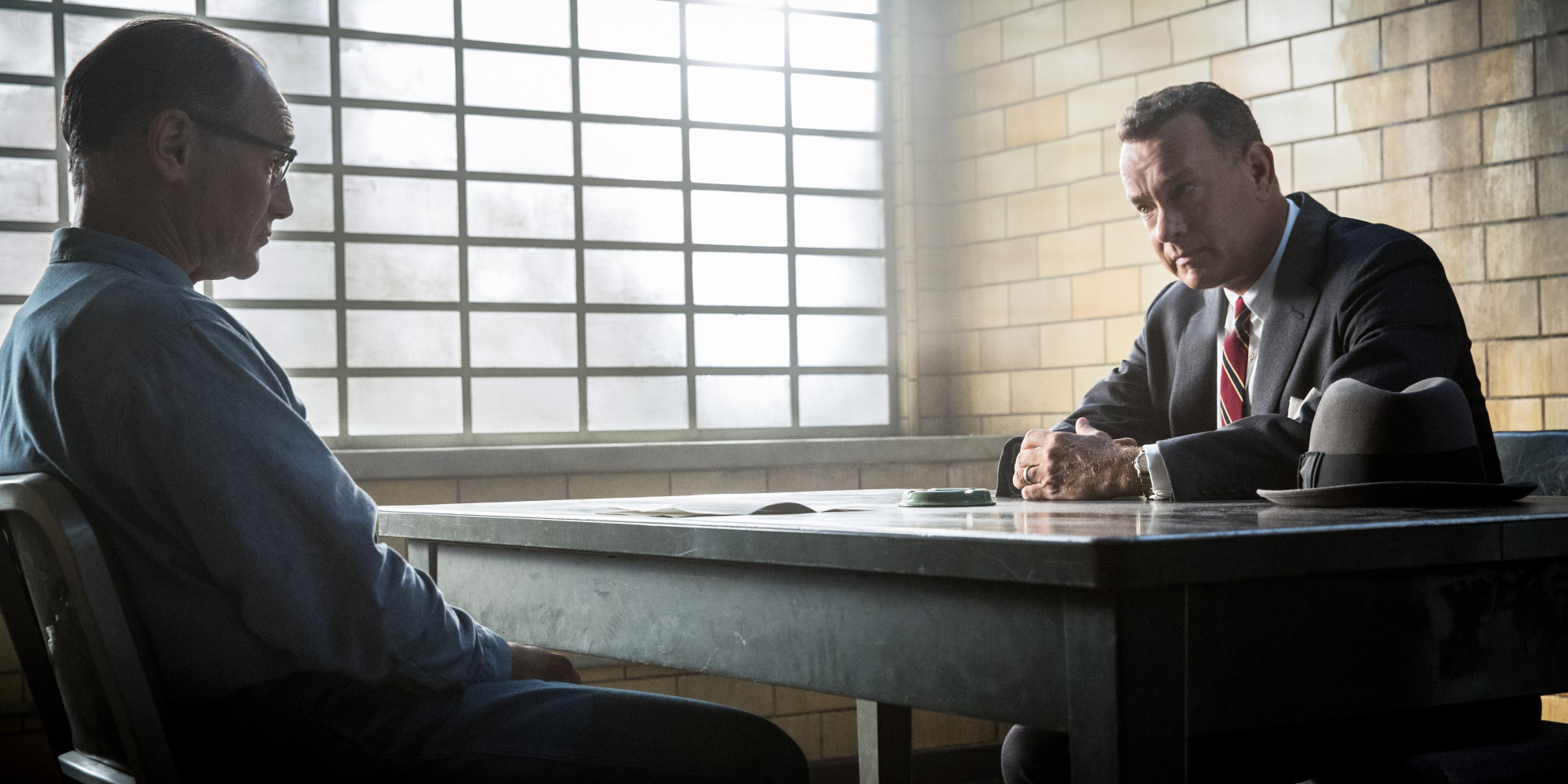
MPAA Rating: PG-13 | Rating: ★★★½
Release year: 2015
Genre: Drama, History, Spy Director: Spielberg
Understated.
That’s the word that comes to mind when recalling Steven Spielberg’s Cold War drama Bridge of Spies. A muted, steady spy story, Spies feels classic in both form and content, a throwback to a previous era in its style and storytelling. Inspired by true events, the film follows James Donovan (Tom Hanks), an insurance lawyer from Brooklyn called in by the US government to defend a Soviet spy, Rudolf Abel (Mark Rylance). Donovan takes his job seriously and gives a solid defense for Abel, despite the circumstances of defending a potential Soviet in an era of McCarthyism and suspicion.
Both Rylance and Hanks give excellent performances and portray interesting characters without ever having to go full-blown This Is An Oscar-Worthy Performance mode. Rylance communicates so much with subtle facial movements and expressions–he comes across as both calculating and naive, and one feels empathy for the man despite his supposedly treacherous job. Hanks, an actor who is difficult to forget that he’s Tom Hanks, sinks into the role of Donovan with a smooth charm; he’s a caring family man, a man with principles, caught up in a situation much larger than himself. Their chemistry together in the few scenes they share is remarkable, and I imagine it owes much to the taut, concise script (co-written by the Coen brothers) and Spielberg’s direction which make these scenes work so well. This is an exercise in restraint, and the whole approach works so well for such a spy story, which focuses less on big performances (i.e. The Big Short) or big camerawork and direction (i.e. The Revenant), and instead allows the story and actors room to breathe in order to bring its historical story to life on screen.
Bridge of Spies raises a number of moral and ethical questions without ever feeling like a heavy-handed “message” movie. When Donovan is confronted with judges and lawyers bent on making sure Abel gets the death penalty, he raises important questions about due process, justice, and our very system of government and American principles. Later, when Donovan is asked by the C.I.A. to negotiate a deal with the Soviets to return a captured American pilot, Donovan takes matters into his own hands by bringing in *two* captured Americans into the deal. He talks about how every small thing (and person) matters–there is significance and value in every personal transaction for Donovan. Abel shares a story about a “standing man” who won’t back down from oncoming bullies, but quietly stands for his principles. Donovan is such a man, and it’s remarkable to see a person not give into peer pressure while also not making a huge bombastic ruckus, giving long speeches about not being a part of the “system.” Donovan *is* part of a system, the American justice system, and his principles guide him to make tough decisions in the face of scrutiny and criticism.
Overall, the excellent performances, direction, and story-telling make Bridge of Spies a strong candidate for one of the better films of 2015. While it didn’t have many huge moments of catharsis for me, it’s nonetheless a very good film, and worth the attention it’s receiving this Oscar season. It’s the sort of attention men like Donovan avoid; they’re not doing this for glory or fame or even to prove to the world that they’re right. They do what they do because, for them, it’s the right thing to do. He’s an understated, standing man. In a post-Cold War era full of political sound and fury, we need more of those.
IMDB Listing: http://www.imdb.com/title/tt3682448/